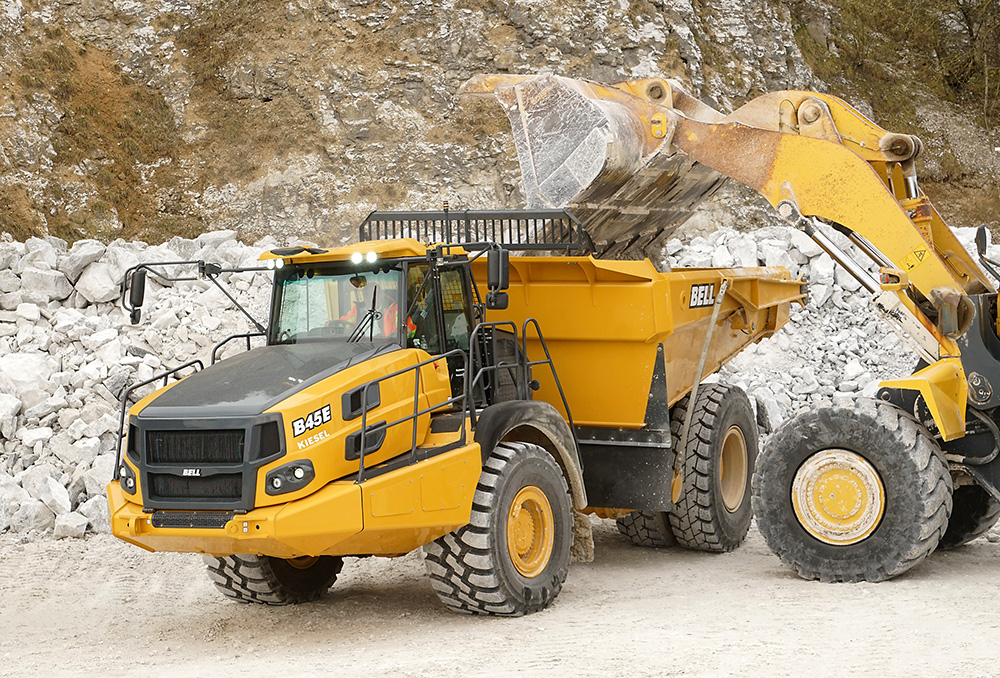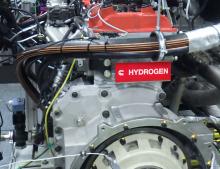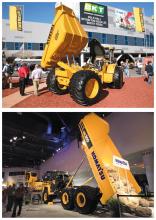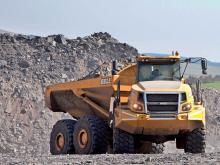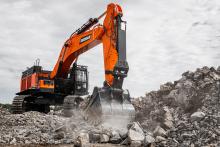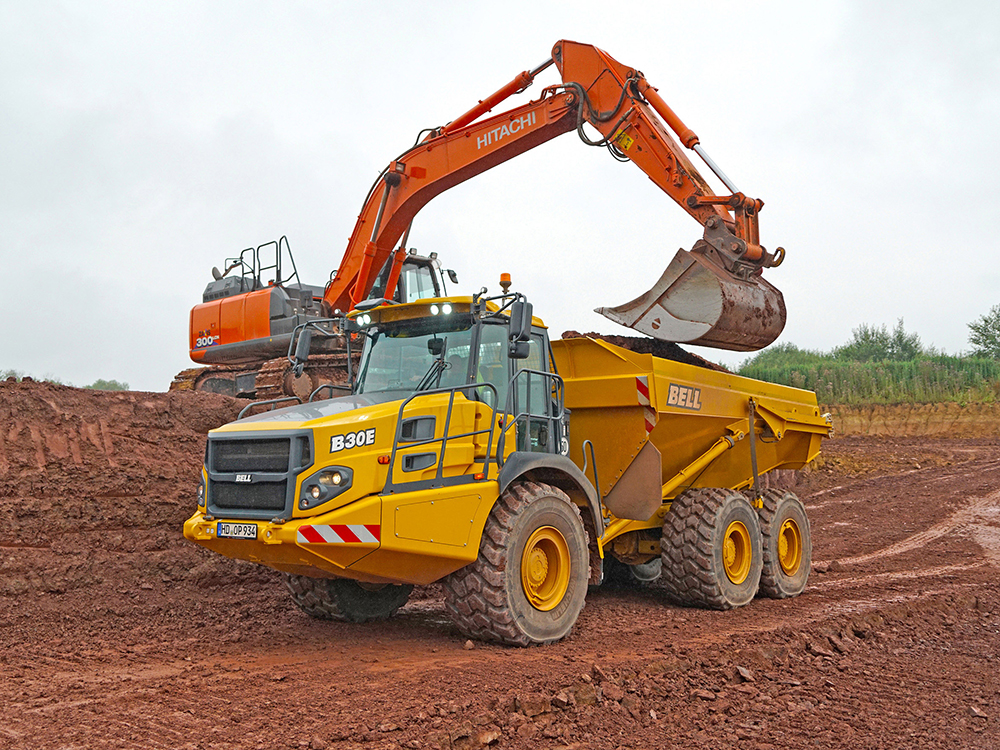
The ADT segment has been an important part of the earthmoving machinery market for many years. These versatile machines offer an effective way to move earth. While their efficiency may be lower than that of scrapers when used correctly, ADTs are far more versatile and can be used in a wider range of duties over different haul lengths.
From being machines built in comparatively small numbers by only a few firms, ADTs are now important items of earthmoving equipment for many contractors. The list of firms offering these machines also continues to grow meanwhile. Volvo CE and Caterpillar (in that order) may retain dominance of the segment, but there are very credible machines also on the market from several other firms.
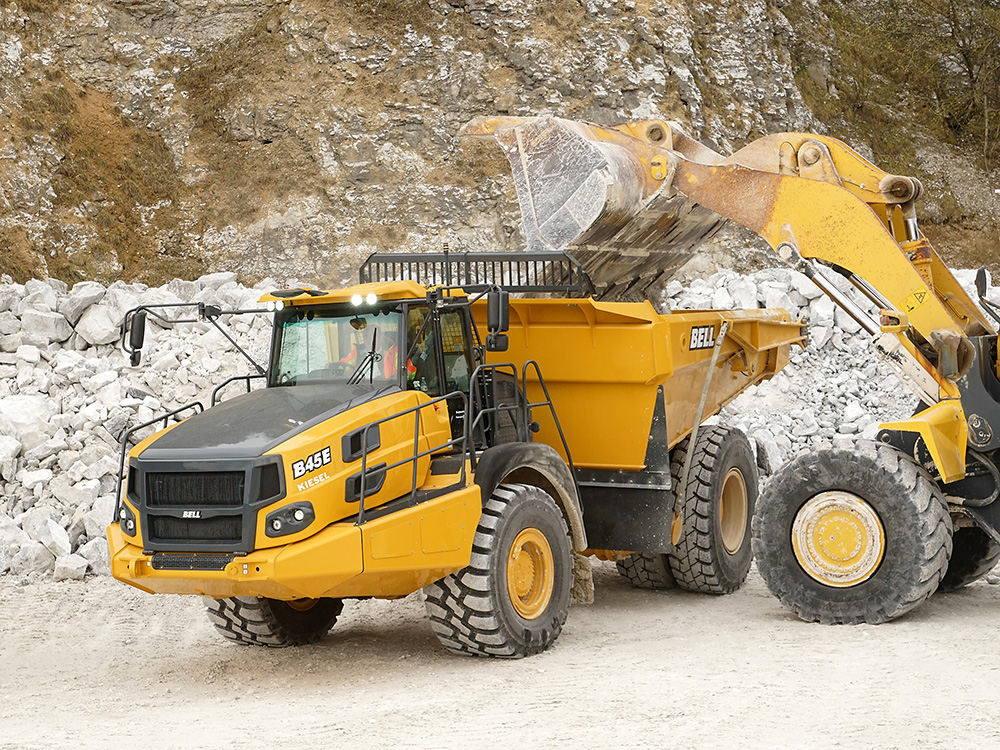
South African company Bell Equipment has long been a key contender in the ADT sector and continues to develop its product offering. The firm has two important additions to its ADT range now being unveiled.
One of these is a special narrow version of its B30E truck, which has been configured for use on road. The machine has been developed to meet the needs of those earthmoving contractors that sometimes have to move machines by road as well as firms that may even be shifting dirt on road.
The truck has narrower tyres than the standard model, giving it a width of just under 3m. This narrower specification allows it to be used on-road and customers are able to specify the truck with a full package of road equipment such as suitable mudguards, lighting and licence plates.
The same six-cylinder Mercedes diesel rated at 260kW that meets Stage V/Tier 4 Final emissions requirements is fitted to the special narrow variant to the standard machine and this also drives through the same six-speed Allison transmission. The payload also remains at the same at 28tonnes, though the dumpbody is revised to keep it within the 3m width limits. The machine offers a top speed of 50km/h and is equipped with an automatic retarder, while the dumpbody retains its heating kit to ensure efficient tipping with sticky materials.
Moving up the size scale, Bell Equipment says that its improved B45E articulated truck offers a performance gain over the company’s earlier model for this class. The key improvement is the addition of rear suspension, which helps improve travel speed over rough ground while also reducing material spillage from the dumpbody.
The firm says that the suspension system is similar to the design used on the firm’s 55tonne class machine, featuring a Kessler axle and two suspension struts. An anti-slip system and traction control also help improve performance on rough ground, while reducing wheel slip and tyre wear for the 4x4 driveline.
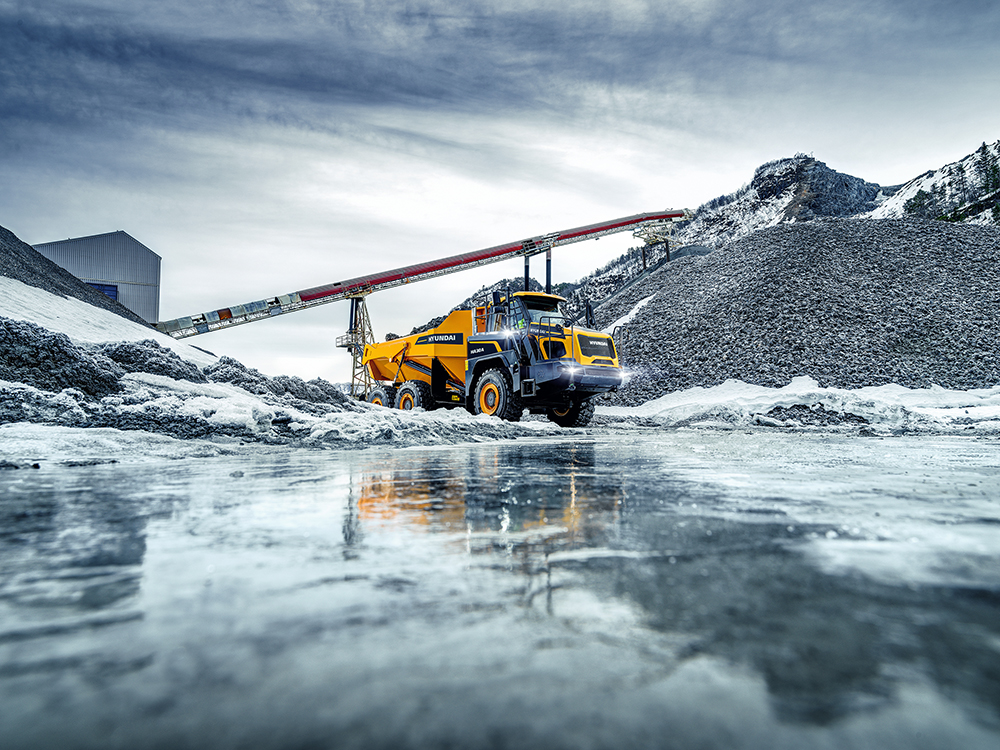
The standard body capacity is 25m3 although a 26m3 variant with a tailgate is available and the revised design offers a payload of 41tonnes, pitching the truck against 45-50tonne capacity class rigid haulers. However, the new Bell machine has the advantage of the 4x4 drive system meaning that the B45E is better able to cope with the steep ramp hauls often seen on European quarry sites than comparable rigid dump trucks with only rear-wheel drive.
Power comes from the same emissions compliant, 390kW Mercedes diesel as used in the six-wheel-drive version of the B45, with the key differences being the rear chassis and dumpbody design.
A new entrant to the ADT market is Hyundai, which is now offering two ADTs, the HA30 and HA45 that have capacities of 28tonnes and 41tonnes respectively. While the machines may be new to the Hyundai brand, they do feature proven designs and technology.
These ADTs are the well-accepted Doosan models built in Norway and now being offered in Hyundai branding following the tie-up between the firms.
The firm claims equal weight distribution due to the sloping rear chassis frame design, which is said to deliver stability by distributing more load towards the centre of the machine and resulting in a low centre of gravity.
The machines also have the proven tandem rear axle bogie configuration, which is said to offer a higher degree of articulation than competing designs and optimises ground contact to maximise traction. The machines also feature the articulation joint turning ring mounted close to the front axle, which further helps to equalise load distribution between the front to rear and across the front axle during steering.
The trucks are powered by Stage V-compliant Scania diesels. The HA30A uses a five-cylinder, 9.3litre, DC9 turbocharged diesel, developing 276kW and 1,876Nm of torque. The larger HA45A employs a six-cylinder, 12.7litre DC13 diesel engine, producing 368kW and 2,476Nm of torque.
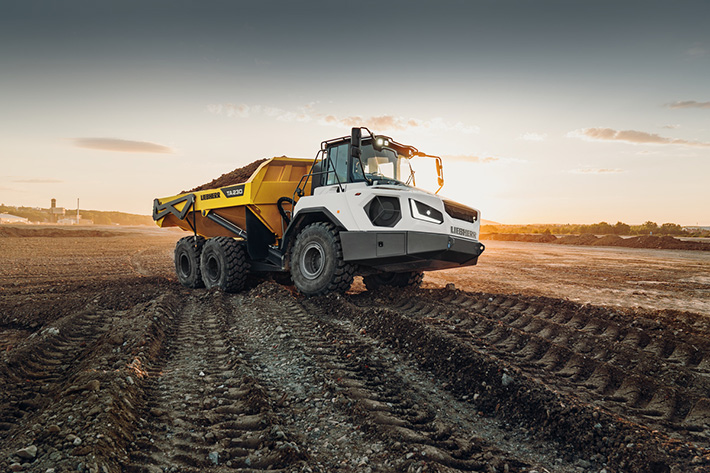
Both engines drive through eight-speed ZF automatic transmissions, with integrated retarders. The torque converter has lock-up in all gears, reducing fuel consumption and increasing efficiency.
The AdBlue diesel engine exhaust fluid and a standard auto-lube greasing system can all be easily accessed from ground level.
The engine canopy tilts forward for access to filters and fill points, while the cab structure can be tilted to provide access for repair and maintenance. In addition, Hyundai’s Himate telematic monitoring system is fitted as standard, with satellite and GSM connectivity. This allows customers to monitor productivity, fuel consumption, system warning and maintenance status remotely, reducing downtime and improving fleet utilisation.
An upgraded truck for the ADT segment is now being offered by Liebherr, which says that the improved version of its Generation 8 version TA230 Litronic ADT will provide greater productivity. Empty vehicle weight is 24.6tonnes while load capacity is 28tonnes and power comes from a six-cylinder, Liebherr diesel, which features exhaust gas aftertreatment to meet the Stage V emissions requirements. The 12litre diesel delivers 265kW and is said to be responsive and economical on fuel, allowing a top speed of 57km/h. The 18.1m3 capacity dumpbody is made from hard wearing steel for long life, with a profile that allows efficient dumping. Maintenance of the truck is said to be eased due to grouped service points.
Aimed at use in the earthmoving and extraction sectors, the truck is rugged and durable according to Liebherr. A specially modified version is also available for use in tunnelling projects.

